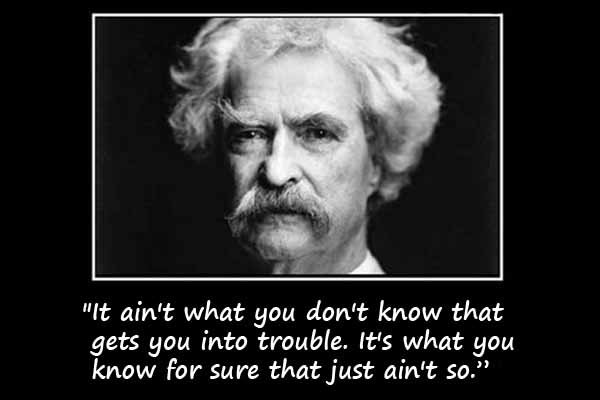Thursday, September 19, 2013
Language is not harmless ... but can be health giving
Language is not harmless. It is through language that unspeakable horrors against blacks, women, Jews, and others were justified. [...] As historian Marjorie Spiegel notes, throughout history, when oppressors wanted to target a particular group, they used language to prepare the population for the coming destruction. Slavery was accepted because the terminology used to describe black people — mad dogs, coons, apes — did such a powerful job of turning humans beings into something 'other' that it was not considered a crime to sell them into bondage. [...] These are our teachable moments. It is through our reaction to these incidents that we can finally turn the fantasy of how we Australians perceive ourselves into the reality of a tolerant and equal nation.
McGuire ape gaffe exposes Australian tolerance as myth Ruby Hamad in Eureka Street 30 May 2013
Here's an example from two very different countries using language in devious and dangerous ways:
Second, the issue is being misrepresented in Indonesia. Reporting on the Abbott visit, the Indonesian media have repeatedly described asylum seekers as illegal immigrants using the Indonesian term imigran gelap. Gelap means dark and suggests activity that is shadowy and suspicious. The Abbott Government uses similar language and is happy to see the issue defined this way. It allows a humanitarian and human rights issue to be reduced to one of criminality, justifies tough action and absolves one of a duty of care for those legitimately seeking sanctuary. Pat Walsh Abbott's mixed messages for Indonesia in Eureka Street 2 October 2013
Costa Georgiadis, the Greek-Aussie gardening & waste recycling prophet, reckons if you want to change culture, you have to change thinking and to change thinking you have to change the vocabulary people use. Costa looks at the positive health giving uses of language that leads us to do good things for ourselves. Stop saying trash, rubbish or garbage, to be dumped. Say "waste" and we think : "We are making this waste, we are responsible for our waste and we can recycle our waste." Orwell wrote about the sinister, harmful side of thought control through language. Wittgenstein said "Philosophy is a battle against the bewitchment of our intelligence by means of our language." We all know this. Buddhists say we should be mindful of every moment and every word and every thought. Hard work!
I find it interesting to compare our attitudes and vocabulary with that of the USA. Have a look at this page about the origins and meaning of Jim Crow at the Ferris University's Jim Crow Museum of Racist Memorabilia. That same university's brief pages promoting languages learning (only two: Spanish and French) and their page on their Festival of Nations stand in stark contrast to America's colonial, segregated and racist past. I wonder whether their take up rates for these language programs and intercultural activities are any better than ours.
McGuire ape gaffe exposes Australian tolerance as myth Ruby Hamad in Eureka Street 30 May 2013
Here's an example from two very different countries using language in devious and dangerous ways:
Second, the issue is being misrepresented in Indonesia. Reporting on the Abbott visit, the Indonesian media have repeatedly described asylum seekers as illegal immigrants using the Indonesian term imigran gelap. Gelap means dark and suggests activity that is shadowy and suspicious. The Abbott Government uses similar language and is happy to see the issue defined this way. It allows a humanitarian and human rights issue to be reduced to one of criminality, justifies tough action and absolves one of a duty of care for those legitimately seeking sanctuary. Pat Walsh Abbott's mixed messages for Indonesia in Eureka Street 2 October 2013
Costa Georgiadis, the Greek-Aussie gardening & waste recycling prophet, reckons if you want to change culture, you have to change thinking and to change thinking you have to change the vocabulary people use. Costa looks at the positive health giving uses of language that leads us to do good things for ourselves. Stop saying trash, rubbish or garbage, to be dumped. Say "waste" and we think : "We are making this waste, we are responsible for our waste and we can recycle our waste." Orwell wrote about the sinister, harmful side of thought control through language. Wittgenstein said "Philosophy is a battle against the bewitchment of our intelligence by means of our language." We all know this. Buddhists say we should be mindful of every moment and every word and every thought. Hard work!
I find it interesting to compare our attitudes and vocabulary with that of the USA. Have a look at this page about the origins and meaning of Jim Crow at the Ferris University's Jim Crow Museum of Racist Memorabilia. That same university's brief pages promoting languages learning (only two: Spanish and French) and their page on their Festival of Nations stand in stark contrast to America's colonial, segregated and racist past. I wonder whether their take up rates for these language programs and intercultural activities are any better than ours.
Wednesday, September 18, 2013
Rhythm link to language ability - and so much more.
On our visit to Caloundra Primary School yesterday, I noticed six top hats pasted on the window and six labels about Edward de Bono's different problem solving & learning strategies. I commented to my travelling companion that it always seems to me that second language learning calls on so many different dimensions of mind, e.g. all sorts of memory of course; logic for grammar; acting ability for imitating accents and emotional delivery; awareness and control of rhythm and intonation to get the music of the language right; interpersonal and cultural sensitivity for the pragmatics of relationships though another language; emotional dispositions such as persistence and patience so that you allow yourself to go through a long apprenticeship and not be turned off because you do not understand all immediately; and more. Baroness Finchley once stated that it takes 200 brain centres working in coordination to put together that miracle called language competence.
It's a complex universe and life. It takes a complex code to represent it. It takes a complex brain to master that code which is also a social and always evolving phenomenon. I think that diversity of components is what makes L2 learning so rewarding and, for some, so challenging. Perhaps similar challenges, but much richer authentic purposeful input, exist for first language acquisition too.
I so wish foreign languages teachers had the time and opportunities to really train properly for their complex jobs (they don't in Australia -they should have specialised degrees - if lucky they get one or two courses in a DipEd) ... and to prepare properly in their jobs (they don't) to take advantage of all the huge range of life situations and mental-emotional faculties that language calls on.
That's what this short newspaper article Rhythm link to language ability sent by Heather Kopp made me think ... when I should be finalising exams, revamping courses or marking.
It's a complex universe and life. It takes a complex code to represent it. It takes a complex brain to master that code which is also a social and always evolving phenomenon. I think that diversity of components is what makes L2 learning so rewarding and, for some, so challenging. Perhaps similar challenges, but much richer authentic purposeful input, exist for first language acquisition too.
I so wish foreign languages teachers had the time and opportunities to really train properly for their complex jobs (they don't in Australia -they should have specialised degrees - if lucky they get one or two courses in a DipEd) ... and to prepare properly in their jobs (they don't) to take advantage of all the huge range of life situations and mental-emotional faculties that language calls on.
That's what this short newspaper article Rhythm link to language ability sent by Heather Kopp made me think ... when I should be finalising exams, revamping courses or marking.
Monday, September 16, 2013
Free Sample Articles from ACTFL
Free Sample Articles from ACTFL the American Council on the Teaching of Foreign Languages (ACTFL). This looks good OCTOBER 2012 Going for 90% Plus: How to Stay in the Target Language or from August 2012 Beyond Requirements: Why Do Students Continue with Language Study? Check out ACTFL webinars and other activities, they are on Facebook.
Subscribe to:
Posts (Atom)







 http://www.mckinsey.com/locations/ukireland/publications/pdf/Education_report.pdf
http://www.mckinsey.com/locations/ukireland/publications/pdf/Education_report.pdf
